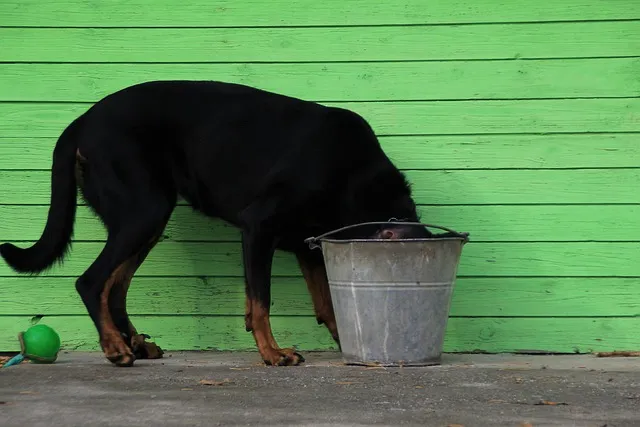Can Dogs Drink Milk? The Short answer to this Question is yes. Milk is a common point of contention, and numerous dog owners wonder if it’s safe to share with their pets. Because milk isn’t poisonous to breeds, it isn’t always well-permitted. Some breeds can drink milk sometimes without problems, but others may experience digestive issues due to lactose intolerance. Whether or not your dog can safely consume milk depends on their digestive system and overall health.
Lactose Intolerance in Dogs
Lactose intolerance is a condition where the body cannot properly digest lactose, the natural sugar found in milk. Dogs produce an enzyme called lactase to break down lactose, but numerous adult dogs produce less of this enzyme as they progress. As a result, milk may lead to symptoms similar to gas, diarrhea, bloating, or vomiting. Puppies generally tolerate milk more because they produce more lactase during nursing. Still, this capability declines after they’re weaned.

Is Milk a safe-deposit box for breeds?
Milk is safe for breeds only if given in small amounts and if the dog isn’t lactose intolerant. However, it’s stylish to introduce it gradually and observe their response if your dog has never had milk before. A small quantity may be inoffensive, but regular or inordinate consumption can lead to digestive discomfort. Always treat milk as an occasional addition rather than a regular part of their diet.
Types of Milk and Dairy Products
Not all dairy products are created equal for breeds. Cow’s milk is the most generally available but is also the highest in lactose, making it more likely to cause problems. Goat’s milk contains less lactose and is frequently better tolerated. Lactose-free milk is a safer option for breeds with mild lactose intolerance. Some breeds may also tolerate small quantities of plain yogurt or cottage cheese, as these products generally contain lower concentrations of lactose. Still, always choose thin and unflavored kinds to avoid dangerous complements.
Nutritive Pros and Cons
Milk does give some nutritive benefits, including calcium, protein, and vitamins similar to A, D, and B12. Still, these nutrients can be attained from balanced dog food without the implicit pitfalls associated with milk. On the strike, milk contains a high quantity of fat and sugar, which can contribute to rotundity, pancreatitis, or other health issues if consumed constantly or in large quantities. For breeds with sensitive tummies or salutary restrictions, the pitfalls frequently outweigh the benefits.
How much Milk can a Dog Drink?
Still, it should be given in moderation if your dog handles milk well. Small breeds can have about 1 to 2 teaspoons sometimes, while medium to large breeds can tolerate many teaspoons. It should in no way be given diurnally or used as a cover for water. Always watch for any negative symptoms after consumption and stop immediately if you notice any discomfort.
When to Avoid Milk?
Milk should be avoided entirely for breeds that are known to be lactose intolerant, have frequent digestive issues, or suffer from conditions like rotundity or pancreatitis. Breeds on a low-fat or specialized diet should also not be given milk. In these cases, indeed, small quantities may lead to complications and discomfort.
Healthier Alternatives to Milk
Still, consider safer options if you want to give your dog a special treat or condense their diet. Fresh Water should always be the primary source of hydration. Unsalted bone broth or dog-specific milk formulas are better choices for breeds that need commodity redundancy. There are also numerous dog treats available that are both delicious and nutritionally safe.

Final Thoughts
In conclusion, Dogs can drink milk in small quantities if they aren’t lactose intolerant. Still, it should only be offered sometimes and in no way replace water or a balanced diet. Monitoring your dog’s response and consulting your veterinarian before adding new foods to their diet is always the safest approach. Because milk may be a nostalgic comfort for humans, it should be treated with care when it comes to breeds.
Some more related Questions:
. Can Dogs Eat Cucumbers?







